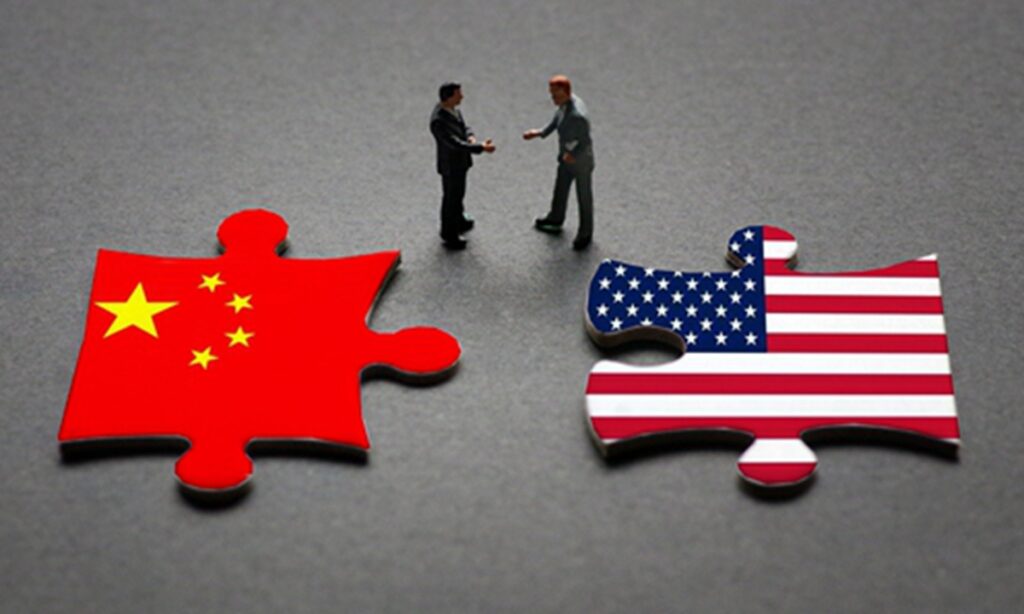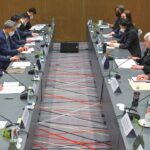Before visiting Africa, US Treasury Secretary Janet Yellen made a detour to Switzerland and held talks on Wednesday with Chinese Vice Premier Liu He, also chief of the Chinese side of the China-US comprehensive economic dialogue who is attending the World Economic Forum Annual Meeting in Davos. This is the first face-to-face meeting between the two after three video calls. It’s also the first meeting between senior officials of China and the US this year. Therefore, it has received high attention and rich interpretation from the international public opinion. Such a meeting is obviously welcomed by everyone. It is also reported that US Secretary of State Antony Blinken will visit China on February 5, which will make him the first US Secretary of State to visit China in nearly five years.
During the two and a half hours, the two sides had professional, in-depth, candid and pragmatic exchanges, and the talks were constructive. Both sides believe that it is in the interest of both countries as well as the whole world for China and the US to strengthen macro-policy communication and coordination and jointly address challenges in the economic and financial fields. The Chinese side also expressed concern about the US economic, trade and technological policies toward China, and hoped that the US side would pay attention to the impact of these policies on both sides. Yellen also said that she looks forward to traveling to China in the near future, which was welcomed by the Chinese side. It’s clear that China and the US are implementing the spirit of the Bali meeting between the two heads of state and gradually resuming high-level exchanges in the fields of diplomacy, economy and trade.
The relatively positive new look at the beginning of the new year is a long overdue easing and restoration of China-US relations that have been strained for several years. For the cloudy world economic and security situation in 2023, it feels like timely refreshing rain after a long drought. We hope to hear more good news about peace and development from China-US relations, the most important bilateral relationship in the world, rather than bad news of conflicts and confrontation. We are looking forward to seeing some breakthroughs in managing and controlling differences and strengthening mutually beneficial cooperation between the two countries in 2023.
The meeting between Liu and Yellen has sent a clear signal that the two sides need to cooperate in the fields of finance, economy and trade. It also showed the part that has been deliberately ignored or downplayed in the current US’ narrative of the “competition” with China.
In fact, despite the enormous difficulties encountered in bilateral relations, 2022 still marked a record for China-US trade volume. As the two largest economies in the world, China and the US have the responsibility to strengthen the coordination of economic and financial policies and promote cooperation in the economic and trade fields between both countries. This is also a heavy but inescapable duty for the two major countries from any angle.
As a matter of fact, not only does the international community have such needs and expectations, but it is even more so for China and the US. Except for the US anti-China politicians who advocate ideology and those who engage in public opinion incitement, most people in the US have no sense or are indifferent on geopolitical competition. After all, whether in the US or China, the common people just want to live their life. Washington’s foreign policy should be based on this, and the focus should be shifted from zero-sum game to win-win and cooperation.
The US still has not shaken off the challenge of high inflation, and its economy is facing the risk of recession. While after optimizing and adjusting its epidemic prevention and control policies, China is devoting more energy to economic development. If political factors are not involved, the area of mutually beneficial cooperation between China and the US has actually not shrunk, but become larger.
In recent years, Washington has strengthened the confrontation between the camps in terms of international security, and promoted “decoupling and breaking chains” in the global economy and trade, which has stirred up the entire international environment. As the troublemaker, the US has the responsibility to clear it up.
However, only depending on the US’ conscientiousness will not work. Before the meeting between Liu and Yellen, the US’ Nimitz carrier strike group was still operating in the South China Sea. The day before the meeting, US President Joe Biden was trying to continue to persuade Dutch Prime Minister Mark Rutte to join the US’ chip suppression campaign against China. As soon as the Liu-Yellen meeting is over, Yellen will embark on a trip to Africa, which, according to the US media, is aimed at “countering China’s influence.” China-US relations are complicated, and the main tone of the US policy toward China is still relatively negative, which needs to be adjusted urgently.
Sometimes, we can feel that the US side has the desire to improve relations with China, but before it takes any substantive actions, somebody or something would jump out in Washington to pull back the easing of relations that the two sides have managed to make.
The radical political forces entrenched in Washington have become a huge uncertainty facing China-US relations. To some extent, the China-US relations are at a deadlock, and there is no space to retreat, as doing so would mean terrible conflicts. But moving forward is hindered by Washington’s willingness and ability to act.
However, one thing is certain: for the two countries with a bilateral trade volume of more than $700 billion, it is impossible to be satisfied with only a “no war” status. There is much more that Washington needs and should do.
(Global Times)




